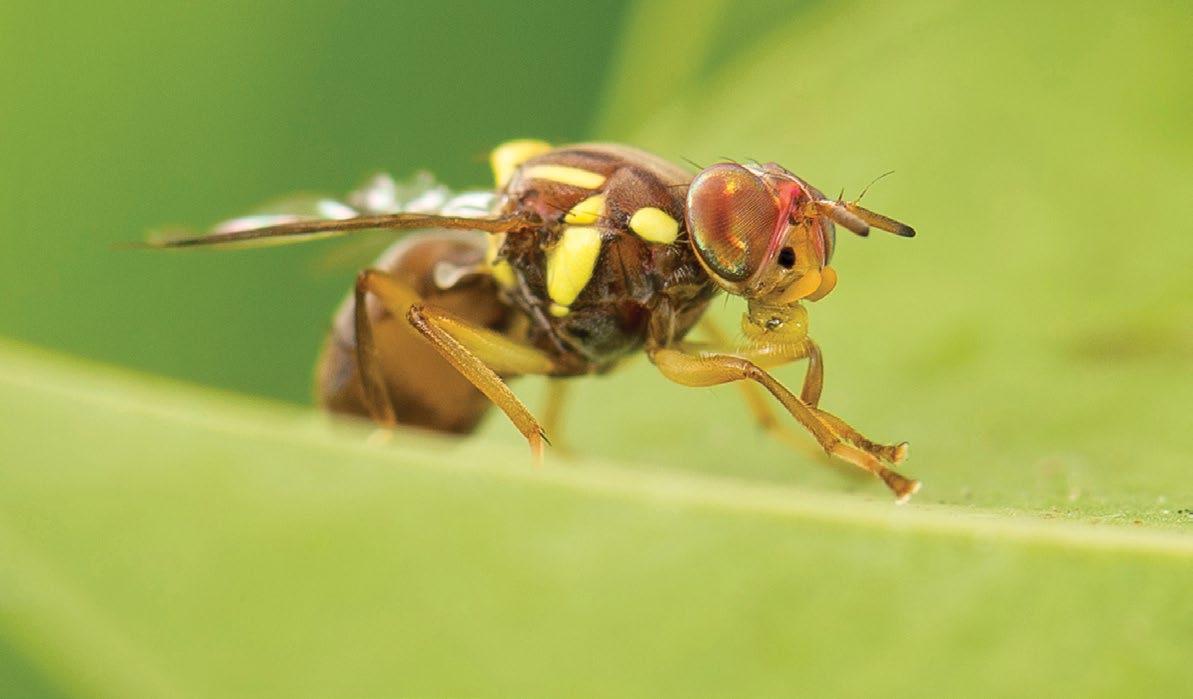
2 minute read
Spring is the time for travel bugs
Spring time
Advertisement
is the time for travel bugs
3 PESTS not established in WA that are of greatest concern include the Queensland fruit fly.
Despite the impact of the COVID-19 Pandemic on overseas and interstate travel, pathways are still open for the world’s most invasive pests to hitch a ride to Western Australia.

The Department of Primary Industries and Regional Development (DPIRD) is reminding growers that pests capable of wiping out entire food crops and environments, such as invasive ants, beetles, bugs, moths, snails and fruit flies, are common stowaways on cargo vessels and imported machinery, and in shipping containers and packages. It may seem like a long road from Europe or remote Queensland, but these pests are expert hitchhikers, hiding in plain sight! Annually, over 18,000 vessels, 1.8 million sea cargo consignments, 41 million air cargo consignments, and 152 million international mail items arrive in Australia from overseas, and numbers are growing every year. While Australia and WA both have strong biosecurity border controls to intercept pests, checking every ship, container and package is not practical. DPIRD is asking growers to become their eyes on the ground. Spring time is a critical time to be on the lookout if receiving imports from the Northern Hemisphere. This is when pests from that part of the world seek shelter from the cold weather, often on ships and in cargo. If you are in receipt of machinery, equipment, boxes, pallets and packages from overseas or interstate, we need you to look for pests or signs of pests. Pests not established in WA that are of greatest concern include: red imported fire ant, brown marmorated stink bug, codling moth, khapra beetle, citrus longicorn beetle, gypsy moth, giant African snail, and Queensland fruit fly. But this list is not definitive! Be on the lookout and report any live animal or insect, egg masses and timber with holes, or plant matter, soil, or plants with signs of disease. It is not uncommon for exotic pests to arrive and be intercepted at the border, which are immediately investigated and managed by DPIRD and/or federal agencies. But once those rare few slip through the cracks, industry and public
IMPORTANT NOTE
If you find something, don’t move the machinery/ container/box/package. Reseal, collect and contain any dead or live specimens, and contact DPIRD immediately.
You can send a photo using the MyPestGuide TM Reporter app or email DPIRD’s Pest and Disease Information Service (PaDIS) padis@dpird.wa.gov.au. You can also make an online report at
www.agric.wa.gov.au/pestsweeds-diseases/mypestguide
or call PaDIS on (08) 9368 3080.
vigilance is critical to early detection, and being able to act quickly to prevent pests from gaining a permanent foothold in WA. Become an important member of the DPIRD surveillance team by getting to know pests of biosecurity concern, and actively looking and reporting anything suspicious or unusual.










